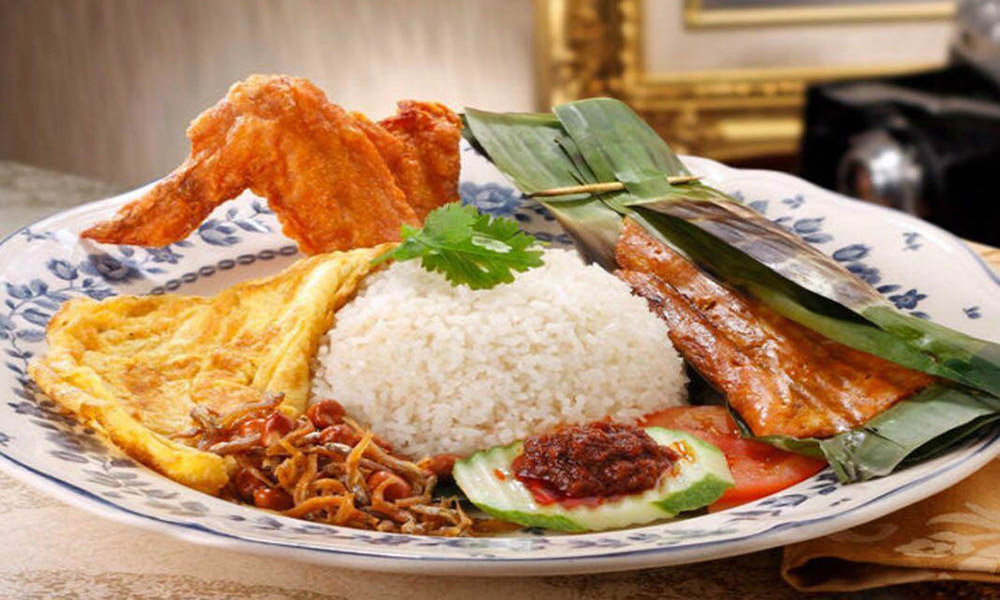By Seah Loi Shun
“A typical Koufu customer is the man-in-the-street, therefore Koufu has the obligation and responsibility to do good things for the general public.” – Mr Pang Lim, founder and managing director of Koufu
Koufu’s logo consists of four brisk calligraphy brush strokes that represent the Chinese character ‘mouth’. Since its inception in 2002, Koufu believes that it is one’s good fortune to partake in delicious food.
The founder and managing director of Koufu, Mr Pang Lim—affectionately known as the ‘Coffee Shop King’—audaciously sold his coffee shop business, Aik Hua, to Kopitiam Investment Pte Ltd in 2002, and re-entered the food and beverage (F&B) market with the ‘Koufu’ brand.
His company integrates contemporary food court design with traditional, coffee shop management style.
Within two years of its establishment, Koufu had received numerous branding and entrepreneurial awards, including the Singapore Promising Brand Award in 2004, the Most Distinctive Brand Award in 2006, The Enterprise 50 Outstanding Business Award for five consecutive years (2005–2009) and Singapore Productivity Award in 2016.
Under Mr Pang’s visionary business acumen, Koufu has grown from three coffee shops to a well-established organisation of over 70 food courts and coffee shops, both at home and abroad, employing more than 1,000 people.
Conferred the Entrepreneur of the Year award in 2004, Mr Pang underscores the importance of incorporating its core values – ‘Better Food’, ‘Better People’ and ‘Better Life’ – into its business development vision, thus bringing ‘Koufu’ (good food) and good service to Singaporeans.
In an exclusive interview with Epoch Times, Mr Pang shares Koufu’s ethos of success.
“As human beings, we live to create value. I think this is the purpose of living.” – Mr Pang Lim, founder and managing director of Koufu
Epoch Times (ET): Koufu has always been supportive of charitable causes. Could you talk more about this?
Pang Lim: Let me start with [the question] “What is charity?” It’s doing good for others, bringing about joy, and at the same time having a beneficial effect on society and human development.
Charitable activities tend to bring out the goodness in human nature. A typical Koufu customer is the man-in-the-street, therefore Koufu has the obligation and responsibility to do good things for the general public.
In view of the above, Koufu has been supporting charities, hoping to make society a better place, with people helping one another.
For society to advance together, we need to help those lagging behind. From this perspective, Koufu has been supportive of charitable causes.
ET: During the initial stage of launching Koufu—when the business wasn’t that stable—had you ever thought of contributing to charitable causes as a way of fulfilling your corporate social responsibility?
Pang: From the beginning, we established our brand, goals, vision, mission statement and the future direction of development. Corporate social responsibility has always been an integral part of our mission.
I drew up a business plan indicating the developmental direction I wanted to go in, before I set up Koufu. I also hired professionals to write out the company’s vision, and a Dutch consultant to come up with the company name, before founding Koufu.
From the start, we laid out our core values of ‘Better Food’, ‘Better People’ and ‘Better Life’.
We promise our customers ‘Better Food’. We aim to enhance the well-being of all people involved in our business, that is, to help them become ‘Better People’. We need to do good, so as to have a more fulfilling and ‘Better Life’.
Doing good includes helping the disadvantaged in society attain a ‘Better Life’, thereby creating intrinsic value for society.
Hence, engaging in meaningful and charitable activities is part of our corporate social responsibility. It’s also embedded in our mission.
Creating value for our customers, employees and society at large is the core of our vision.
One of our visionary goals is for ordinary people to create extraordinary businesses.
ET: Since most F&B employees are blue-collar workers who work long hours, how do you, as the boss, help them become ‘Better People’?
Pang: There are a variety of ways and methods.
As we all know, to make a positive change in a family, you have to start with education.
Koufu has been giving yearly bursaries to every one of our employees’ children—from primary to tertiary school—so as to encourage the kids to study hard.
In addition, every year the company selects workers to take part in a relaxing, incentive tour, with the goal of broadening their horizons. Such benefits are pretty rare in the F&B industry.
Other than that, we also encourage our staff to participate in charitable activities, such as visiting nursing homes.
The aforementioned activities aim to broaden the horizons of our workers, so as to allow them to view things from different perspectives.
These are some of the benefits that we offer our employees.
In order to help our workers improve their livelihoods, we need to help them improve their productivity. Only through increasing their productivity can they earn a higher salary.
We also conduct structured staff-training programmes each month.
Every department undergoes training, which is specific to that department’s function.
Each new employee is well-trained before they start work.
In addition to technical training, our monthly training sessions touch on the aspects of mental health and well-being.
ET: How effective is this training?
Pang: Through years of continuous training, the workers have greatly improved.
When I visited some of our food courts, the employees told me: “I am very fortunate to be able to work here. The company has made good progress in recent years. My livelihood and thinking have also improved.”
These changes are subtle; they’re not instantaneous. This is the power of organisational culture.
ET: How many people are employed in Koufu, and what is your turnover rate?
Pang: Koufu has approximately 1,300 employees, with a turnover rate of less than 3.5%, which is very, very low in the food and beverage industry.
We have a special mechanism in place to retain our employees: we practise profit-sharing.
ET: Can you talk a little about Koufu’s future plans?
Pang: Simply speaking, our plan for the future is to ‘improve’ and ‘innovate’.
To ‘improve’ is to continually strive for excellence, whereas to ‘innovate’ is to advance along with the fast-changing world.
We’ve never thought of stopping or contemplating on how far we can go.
Using our principles to guide us, we are gradually and consistently growing. Constant growth defines our spirit.
ET: With regard to Koufu’s charitable efforts, what’s on the horizon?
Pang: In the past, Koufu had been participating in charitable events organised by other groups.
From 2016, Koufu will be organising its own yearly charitable activities, to give something back to society.
Under the guidance of Singapore’s renowned artist Tan Kay Nguan, over 100 Koufu workers created art pieces related to our ‘Share – A Bowl of Rice’ charity drive.

The proceeds from the sale of their art work was donated to charity.
This gives the workers a chance to participate and realise that they, too, can add something to society, bestowing on them a sense of honour.
This is more meaningful than simply making a cheque donation.
Our ‘Share – A Bowl of Rice’ drive symbolises prosperity, and it also helps to promote art.
We hope to hold this activity on a yearly basis. [This year], we plan on promoting this charity drive at the Housing & Development Board annual celebration of community spirit in the heartlands.
Our vision is for thousands of households to display ‘Share – A Bowl of Rice’ art pieces.
I believe this activity will take Koufu back to its original founding principles.
As a social enterprise, Koufu should be promoting social values and contributing to the community.
ET: During one of your seminars, you shared a little about Kazuo Inamori’s philosophy of life. What are some learning points you have gathered from his unique management style?
Pang: Kazuo Inamori was very influenced by traditional Chinese culture. The main point that Kazuo Inamori was trying to make is that we need to constantly ask ourselves: “What is right?”
In my view, the key learning points are as follows: we need to be diligent, humble, grateful, appreciative, rational, be willing to contribute, and always ask ourselves if we’re doing the right thing.
Human nature tends to be indolent. On the contrary, we have to progress with the times, because the celestial cosmos is endlessly evolving. Hence, there is no reason for human beings not to change for the better.
Second, we have to learn to be grateful and appreciative of others, so that we can help one another make the world a better place.
Third, we need to be humble so that we can identify our shortcomings and further improve ourselves. If you’re complacent, you are likely to stop growing.
Fourth, we cannot be too emotional. We need to strike a balance between being emotional and rational.
ET: In terms of business management, what factors have influenced you the most?
Pang: I am deeply influenced by traditional Chinese culture.
I love to read, and have read many books about Confucianism, Taoism and Buddhism. Reading is my passion.
I have always been exploring the question: “What is the purpose of living?” or “What do we live for?”
ET: In your opinion, what is the purpose of living?
Pang: As human beings, we live to create value, I think this is the purpose of living.
One lives to further improve oneself through constant self-reflection. This broadens one’s horizon and enables one to view issues from different angles and levels.
Recently, I had a realisation about the method of problem-solving versus the psychology of conflict resolution.
Problem-solving methods may temporarily solve a given problem, but they don’t take into account the psychological changes [in a person’s being] and the possibility of relapse.
On the other hand, the psychology of conflict resolution tends to be more effective in solving the root of the problem.
ET: What inspired you to come to the above realisation?
Pang: Every month, we invite a Taiwanese learning-organisation coach to our company to coach our management team on Peter Senge’s ‘The Fifth Discipline: The Art & Practice of the Learning Organisation’.
Peter Senge, a senior professor at the Massachusetts Institute of Technology, studied under the late Nan Huai-jin, a master in Chinese studies.
In fact, ‘The Fifth Discipline’, which is similar to traditional Chinese philosophy, is practised in Western society. Thus, it is very suitable for Chinese enterprises like ours.
For the past seven to eight years, we have been faithfully studying ‘The Fifth Discipline’.
ET: What do you think is the most significant difference between Koufu and other companies?
Pang: Many of my colleagues found that the biggest difference is this: when we decide to do something, we see it through to the end.
Even if the thing we do seems pretty insignificant, we’ll still persist at it. I’ve found that when we keep persisting, the fruits of our labour will eventually become evident.
As long as we take the right road, and continually walk down it, we will eventually cross the finish line.
A 2005 survey by the Financial Times found that out of over 200,000 corporate management books, ‘The Fifth Discipline’ has been selected as the most influential corporate management book in the past two decades by global business leaders.
The five disciplines refer to ‘personal mastery’, ‘mental models’, ‘building shared vision’, ‘team learning’ and ‘systems thinking’.
What Koufu has been practising aligns with some of the above.
The author, Peter Senge, believes that through these five disciplines, an organisation can grow to become a ‘learning organisation’ that continuously grows and innovates in the changing world environment, thus fulfilling the meaning of life.
Despite having only completed primary school education, Mr Pang has successfully established and developed the Koufu brand. His passion for reading and his penchant for traditional Chinese culture have greatly influenced his vision for Koufu. It has enabled him to develop his unique management philosophy, greatly contributing to his organisation’s success.
















